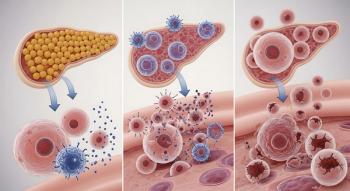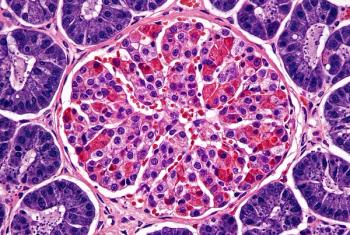
24% of Type 1 Diabetes Patients have Eating Disorders
Eating disorders among patients with type 1 diabetes have increased, which increases the risk for serious complications. Patients who skip insulin doses are at a three times greater risk of premature death.
Eating disorders affect 24% of patients with type 1 diabetes, and 21% of patients skip insulin doses as a way to lose weight, according to a meta-analysis
Type 1 diabetes is an autoimmune disease that affects about 2 million Americans, according to the Centers for Disease Control and Prevention. In type 1 diabetes, the pancreas does not make insulin. Between 2002 and 2018, the overall incidence of type 1 diabetes increased significantly.
Eating disorders among those patients with diabetes have increased over the last 25 years,
In the recent study, researchers in Finland wanted to analyze studies that have reported eating disorder symptoms among patients with insulin-dependent diabetes. They found 45 studies that assessed eating disorder symptoms among patients with insulin-dependent diabetes 16 years of age and older. These studies include a total of 11,592 people and 2,521 cases of eating disorder symptoms.
The researchers — led by Pia E. Niemelä and Hanna A. Leppänen, both in the department of Endocrinology and Clinical Nutrition at Kuopio University Hospital — found that the Diabetes Eating Problem Survey was the most frequently used screening tool. In the studies that researchers reviewed, the overall prevalence of eating disorder symptoms was 24%. Among studies that specifically used the Diabetes Eating Problem Survey, the overall prevalence of eating disorders was 27%. They also found that in studies where there was more than 58% women included demonstrated a higher prevalence of eating disorders compared with studies with a lower proportion of women.
In an additional analysis of 13 studies, researchers found that the prevalence of insulin omission was 21%. “Recent studies suggest that for individuals who omit insulin, the desire to lose weight is more important than the risk of complications,” the researchers wrote. “Our findings emphasize that in clinical practice, it should be acknowledged that nearly one-fourth of adult patients with insulin-dependent diabetes suffer from eating disorder symptoms.”
Previous studies have found that fear of weight gain has contributed to some patients skipping or reducing insulin doses, sometimes called diabulimia.
One limitation of the current meta-analysis, the researchers said, was the heterogeneity of the studies that were reviewed. Additionally, even though the Diabetes Eating Problems Survey is the most widely used tool to screen for eating disorders, it has not been validated as a measure of disordered eating.
“The future aim should be to identify patients with eating disorder symptoms by systematic screening, since concurrent eating disorder and type 1 diabetes increase the risk of diabetic complications, admission rates to hospital and even the risk of death when compared with patients with type 1 diabetes but without an eating disorder,” researchers wrote. “Early recognition and appropriate treatment of disordered eating behavior, as well as other mental-physical multimorbidities of diabetes, reduces morbidity and mortality of patients and is cost-effective.”
Newsletter
Get the latest industry news, event updates, and more from Managed healthcare Executive.























